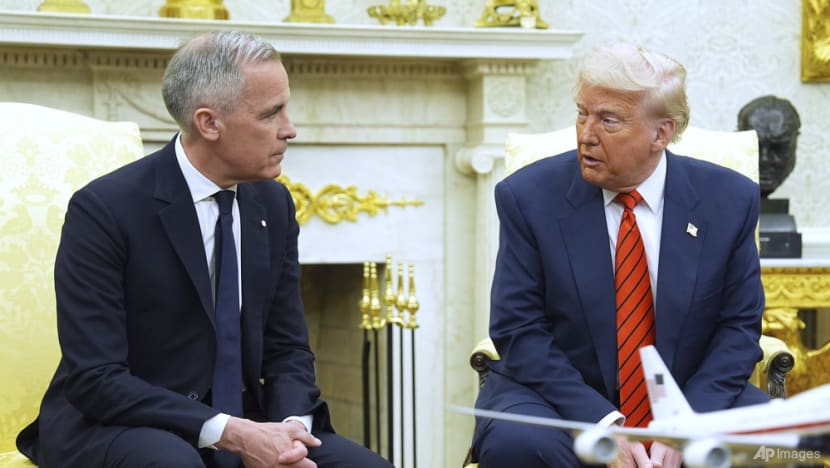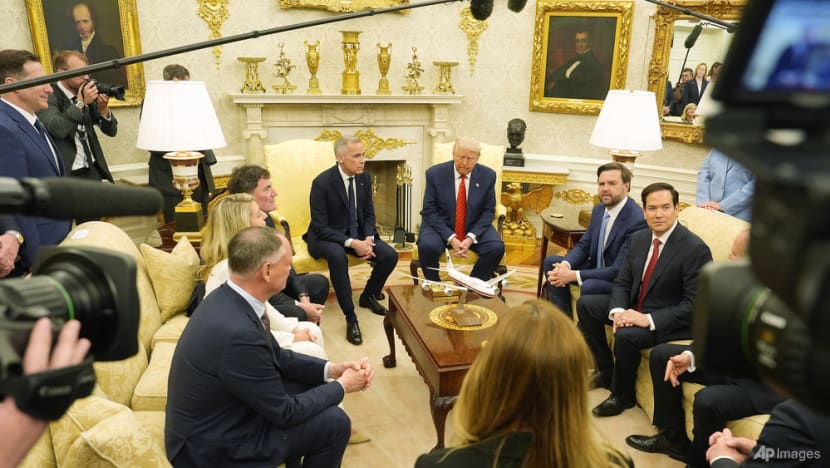Canada's Prime Minister holds trade and sovereignty talks with US President

US President Donald Trump meets Canadian Prime Minister Mark Carney in the Oval Office of the White House in Washington, May 6, 2025. (Photo: AP/Evan Vucci)
WASHINGTON: Canadian Prime Minister Mark Carney told US President Donald Trump on Tuesday (May 6) that his country is “not for sale, it won’t be for sale–ever”, delivering a firm message on Canada’s sovereignty during his first visit to the White House amid escalating trade tensions.
Canada’s new prime minister, Mark Carney, who won with a promise to confront US President Donald Trump's aggression, had the opportunity to do that in Tuesday's face-to-face Oval Office meeting.
Trump and Carney met in the Oval Office and had lunch. Carney stressed that he was elected to specifically “stand up” to the US president and that Canada is “in a once-in-a-lifetime crisis”.
Despite pre-meeting tensions, the two leaders struck a relatively cordial tone at the outset, with Trump calling Canada “a very special place” and saying the two countries would always remain friends.
Carney’s Liberal Party has pledged to redefine Canada’s economic relationship with Washington, seeking to reduce dependence on US exports while protecting key sectors from rising tariffs.

TRADE, SOVEREIGNTY & PROTECTIONISM
Trump has shattered a decades-old alliance by saying he wants to make Canada the 51st US state and levying steep tariffs against an essential partner in the manufacturing of autos and the supply of oil, electricity and other goods.
The outrage provoked by Trump enabled Carney’s Liberal Party to score a stunning comeback victory last month as the ongoing trade war and attacks on Canadian sovereignty have outraged voters.
Trump told reporters on Monday that he wasn’t quite sure why Carney was visiting.
“I’m not sure what he wants to see me about,” Trump said. “But I guess he wants to make a deal.”
The White House meeting marked a pivotal moment for both leaders, as Carney seeks to assert Canada’s independence and economic resilience, while Trump doubles down on protectionist policies that have rattled global markets.
At the centre of the tensions is the US-Mexico-Canada Agreement, a trade deal signed during Trump’s first term that now faces scrutiny as both sides weigh changes ahead of its 2026 review.














